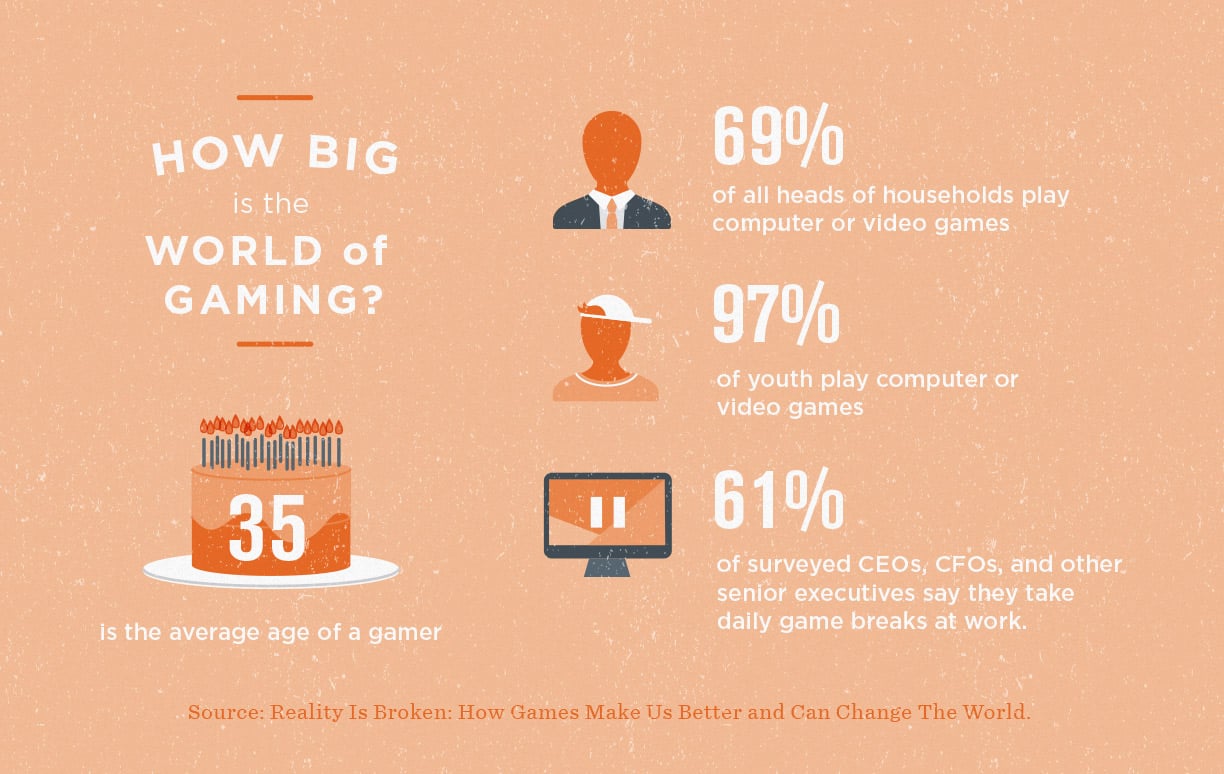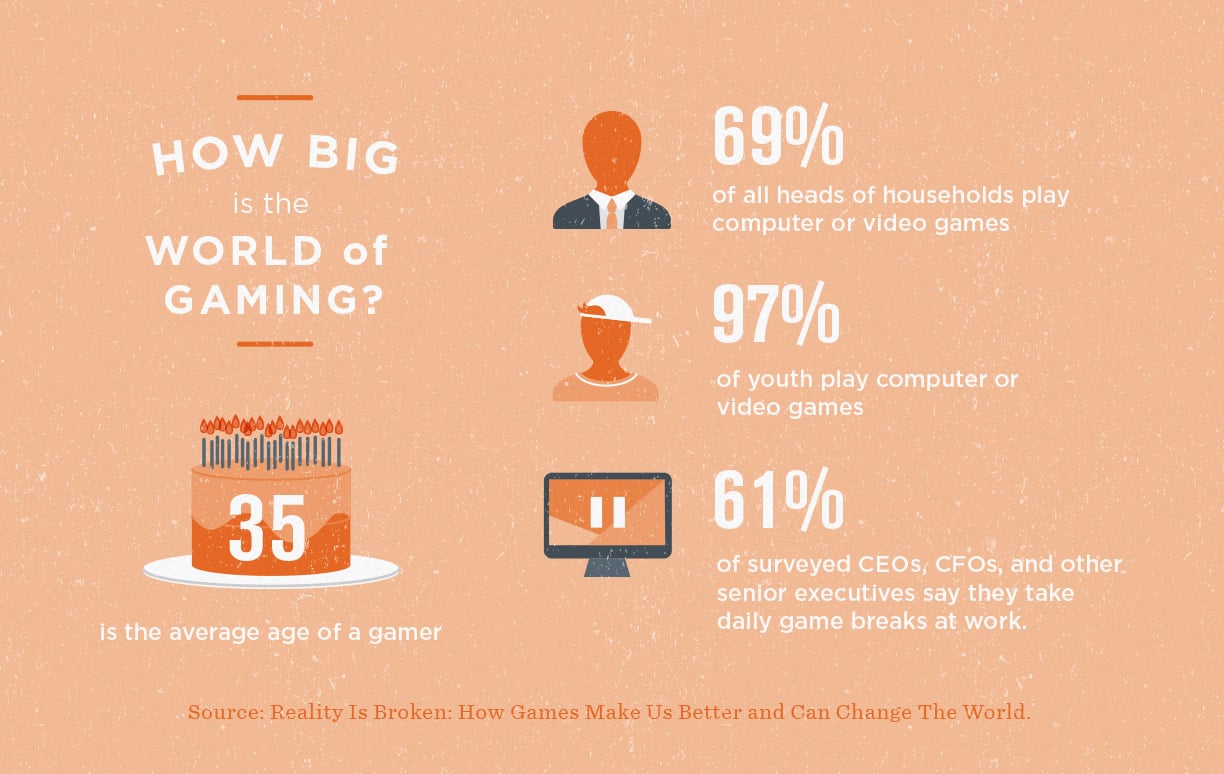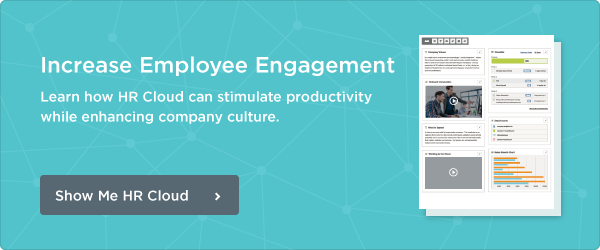5 Aspects of Games to Leverage for Increased Millennial Engagement & Retention

Do you track your American Express points, your frequent flyer miles, Fitbit steps, Weight Watcher points, or your LinkedIn profile strength bar? If so, you have fallen victim to being engaged through gamification. But it’s okay because as humans we are wired to play games. Have you ever thought to harness the power of gaming to engage your Millennial employees?
Wikipedia defines gamification as the use of game design techniques and mechanics in a non-game context to solve problems and engage users. The key word there is engage. And what's more engaging than video games? According to Millennials, nothing. Understand and play to Millennial's hard-wired gaming needs to effectively engage and retain them as employees in the workplace.
How big has the world of gaming become? Consider the below statistics from American game designer, Jane McGonigal’s book, Reality Is Broken: How Games Make Us Better and Can Change The World:
• 69% of all heads of households play computer or video games.
• 97% of youth play computer or video games.
• 35 is the average age of a gamer.
• 61% of surveyed CEOs, CFOs, and other senior executives say they take daily
game breaks at work.
Why is it important to consider gamification in the workplace? Because we are seeing an engagement epidemic of epic proportions at work today. In fact, 70% of American employees aren’t working to their full potential and are not engaged at work (Gallup). Actively disengaged employees cost the U.S. $450 billion to $550 billion in lost productivity per year (Gallup). And 91% of Millennials expect to stay in a job less than 3 years (Forbes).
I’m not advocating that we play games at work. But rather let’s understand why games are so engaging and infuse those elements into our work culture. I believe if you create a culture of fully engaged employees, the retention of your next generation of leaders will take care of itself.
[Tweet "Let's understand why games are engaging and infuse that into work culture @HRCloud"]
5 Aspects of Games To Leverage For Increased Millennial Engagement & Retention
1) Customize: Choices boost capacity.
Games offer the choices of who to play with, when to play, and what to play. Games offer the customization of the user profile or avatar (game character) with unique abilities, traits, and appearances. Gamers also thrive on the freedom to choose a specific mission or storyline. Similarly, Millennials are interested in customizing their career track and the specific work they do.
For example, Deloitte has a “Mass Career Customization” program that allows employees to customize their work preferences. It’s like a “choose your own adventure” game when it comes to how, where, and when you work.
2) Control: Ownership produces outcomes.
Gamers are in control of the outcomes. With a controller in hand, gamers control their avatar’s movement, decisions, and the ultimate outcome of the game. Much the same way, Millennials are interested in having control of their careers. They desire ownership of their positions, tasks, and the outcomes.
For example, Valve (ironically, a four billion dollar video game company) offers modular work where employees get to select the projects they work on the same way they would if there were freelancers.
3) Cultivate: Development triggers devotion.
Gamers learn and cultivate skills through action and failing. In fact, according to Jane McGonigal’s Reality Is Broken, on average gamers fail 80% of the time and yet they still find the gaming experience enjoyable. Gamers have the option to enter tutorials where they can hone their skills or practice a level over and over to master it. The progress bar in games is very satisfying because we can see how far we’ve come and how much we have left to conquer. Millennials want a clear picture of what is expected of them and what skills are required to level-up and accomplish more at work. Communicate expectations clearly and provide environments where they can advance themselves.
For example, Zappos offers a “skill set” system that allows employees to get certified and received a pay bump with each new skill set acquired.
4) Collaboration: Involvement sparks innovation.
We build trust quickly with those that we play games with. We trust they will play within the rules and that they will stick with the game. Growing up playing massive online multi-player games, Millennials came to understand that nothing significant can be achieved alone. The bigger the team, the epic-er the win. Millennials seek collaboration. They learn better and quicker in teams. And often times they will leverage their social networks to crowdsource their research or decision making.
For example, Treehouse, a company that teaches people how to build websites and apps, has an internal collaboration and project management tool called “flow” where employees can propose projects and then recruit people for the project.
5) Consequence: Purpose activates participation.
Gamers willingly struggle from level to level and puzzle to puzzle for the ultimate goal of saving the world. Gaming is engaging because the result is often bigger than ourselves and we surprise ourselves for what we are actually capable of. Millennials desire an epic win. Their definition of success is meaningful work. In reality and in games, they want to change the world. Communicate the consequence, “If you do this, you’ll achieve this." If Millennials know “the why” of their work or your organization, they will throw their heart fully into their work.
For example, at Warby Parker, an eyeglass retailer, for every pair of glasses purchased, a pair is distributed to someone in need. There is a clear consequence for every pair sold and every employee’s work is bigger than themselves. So far they’ve distributed over a million pairs of glasses to people in need—epic win!
Level-up your organization by infusing the engaging and transformative traits of games. Because if you do, the likelihood of having disengaged Millennial employees is...
GAME OVER


